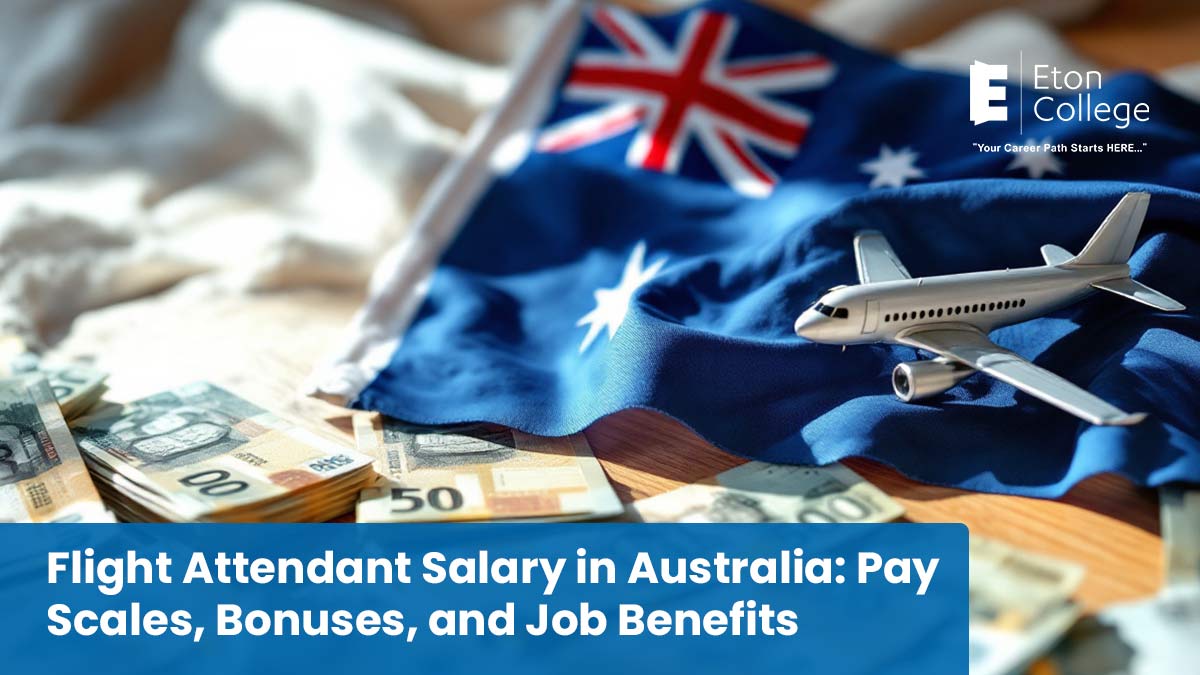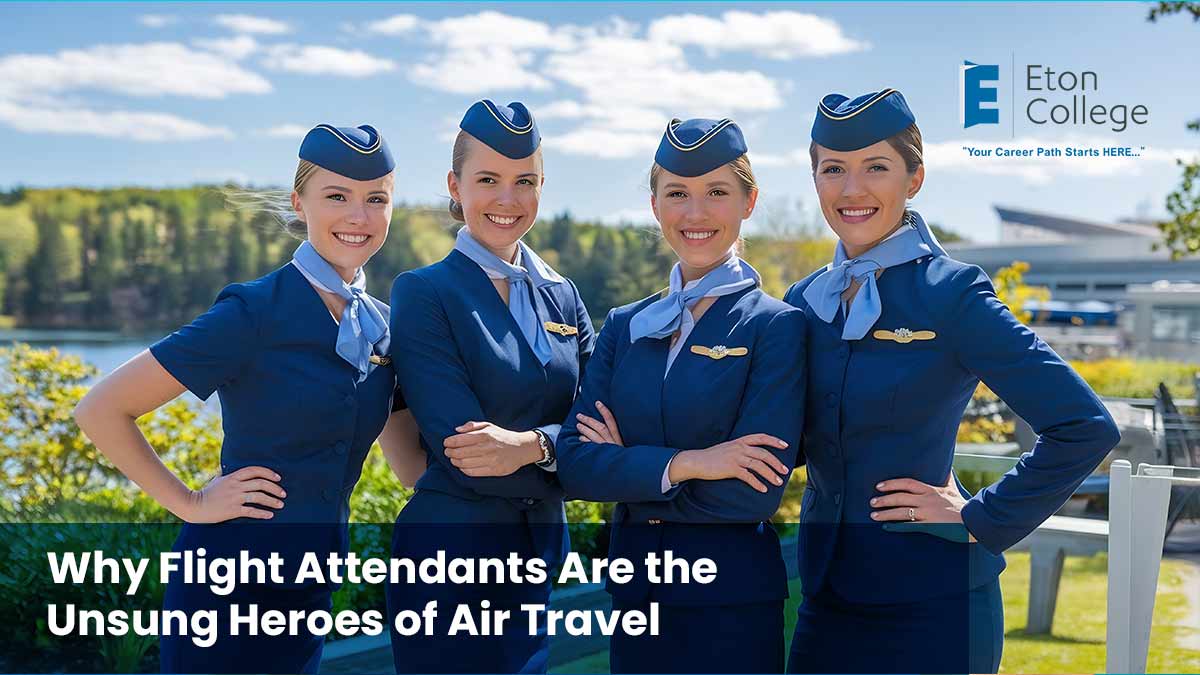Key Takeaways
- The average flight attendant salary in Australia is around AU$51,225 annually, with entry-level earnings typically around AU$42,000.
- Experienced flight attendants can earn up to AU$72,000 per year, with additional bonuses based on performance and profit-sharing.
- Job benefits for flight attendants include travel perks, health insurance, flexible scheduling, and retirement plans.
- Major airlines generally offer higher pay and more extensive benefits compared to regional carriers.
- Career advancement opportunities provide flight attendants with options for increased earnings and roles with greater responsibility.
A career as a flight attendant offers excitement, travel opportunities, and diverse experiences. For those interested in becoming a flight attendant in Australia, understanding the salary structure and benefits is a crucial part of the decision-making process. The flight attendant salary in Australia can vary based on factors such as experience, airline, and additional perks, making this an appealing yet competitive profession. In this article, we’ll explore the average salaries, potential bonuses, and additional benefits of working as a flight attendant in Australia’s aviation industry.
Average Flight Attendant Salary in Australia
According to recent data, the average annual salary for a flight attendant in Australia is approximately AU$51,225, though this can vary. Entry-level flight attendants, typically those with less experience, might start around AU$42,000, while seasoned professionals with years of service can earn closer to AU$72,000 per year.
This average pay is indicative of the typical earnings of Australian flight attendants, but there are many factors that can influence specific earnings. For example, flight attendants working for major airlines on international routes may have higher pay compared to those on regional or domestic flights.
How Experience Affects Salary
Experience plays a significant role in determining a flight attendant’s salary in Australia. New flight attendants generally begin on the lower end of the salary range, while those with several years of experience or specialized skills—such as fluency in multiple languages—can earn higher salaries. Additionally, experienced flight attendants often have the opportunity to take on senior roles or supervisory positions, which come with added responsibilities and increased pay.
Moreover, many airlines in Australia offer regular pay increments as employees gain experience. This structure incentivizes flight attendants to remain with the same airline for longer, fostering loyalty and helping flight attendants build a stable career path within the industry.
Bonuses and Profit Sharing
In addition to base salaries, many flight attendants in Australia can earn bonuses. These bonuses vary depending on performance, the airline’s profitability, and individual contributions. Bonuses can range significantly, from as low as AU$126 to as high as AU$33,000 annually, depending on the specific airline and employee role. Some airlines also provide profit-sharing opportunities, where flight attendants may receive a portion of the airline’s profits. While profit-sharing amounts are generally modest, ranging from AU$0 to AU$750, they are an added benefit that can enhance total compensation.
These bonuses and profit-sharing options make the profession more financially rewarding. For flight attendants who meet or exceed performance expectations, these additional earnings can be a substantial part of their income, making their overall compensation package more attractive.
Additional Job Benefits
The benefits of being a flight attendant extend beyond base salary and bonuses. Many airlines in Australia offer a range of perks to their employees, enhancing the appeal of this career. Here are some key benefits:
- Travel Benefits: One of the most appealing aspects of being a flight attendant is the travel privileges. Many airlines offer free or discounted flights to employees, sometimes extending these benefits to family members. This perk allows flight attendants to travel the world affordably, whether for leisure or family visits.
- Health Insurance: Comprehensive health insurance is a standard benefit for flight attendants, covering essential medical needs. This includes coverage for medical, dental, and sometimes vision care, ensuring that flight attendants and their families are well-protected.
- Flexible Scheduling: While flight attendants may work irregular hours, the job often offers flexibility. Many airlines allow employees to bid for preferred routes and shifts, giving them some control over their schedules. As flight attendants gain seniority, they are likely to have even greater flexibility in choosing their shifts.
- Retirement Plans: Airlines in Australia often provide retirement plans, helping flight attendants prepare for their financial futures. Contributions to these plans are typically matched by the airline, ensuring that employees can build a retirement fund over time.
- Career Development Opportunities: Airlines frequently provide opportunities for flight attendants to advance their careers. Senior flight attendant positions, instructor roles, and management positions are examples of career paths available for those looking to grow within the industry. These opportunities often come with increased pay and benefits, adding to the long-term appeal of a flight attendant career.
The Role of Airline Choice
The airline a flight attendant works for can have a notable impact on their salary and benefits. Major Australian airlines, like Qantas and Virgin Australia, tend to offer more competitive salaries and benefits compared to smaller or regional carriers. Larger airlines often provide more travel benefits, higher bonuses, and more comprehensive insurance coverage.
On the other hand, smaller airlines may offer shorter, regional routes that appeal to individuals looking for a more balanced work-life schedule. These airlines may have lower pay scales but could be attractive to those who prefer shorter shifts and a more predictable routine. Flight attendants should consider their personal priorities and lifestyle preferences when choosing an airline to work for.
Begin Your Path as a Flight Attendant
Choosing the right flight attendant certification program in Vancouver is an essential step toward a successful aviation career. With excellent programs at institutions like Eton College, Canadian Tourism College, and Vancouver Aviation College, students gain valuable classroom knowledge alongside practical training.
This well-rounded preparation positions you to thrive in the competitive aviation industry. If you’re ready to start this exciting journey, Vancouver’s top flight attendant schools provide an ideal foundation for a rewarding, adventure-filled career in the skies.
FAQ: Flight Attendant Salary in Australia
- What is the average salary for a flight attendant in Australia?
The average annual salary for a flight attendant in Australia is approximately AU$51,225, but this can vary based on experience, airline, and other factors. - How much can entry-level flight attendants expect to earn?
Entry-level flight attendants typically earn around AU$42,000 per year. With experience, they may see their earnings increase. - Are bonuses common for flight attendants in Australia?
Yes, many airlines in Australia offer bonuses that can range from AU$126 to AU$33,000 annually, depending on performance and the airline’s financial success. - What other benefits do flight attendants receive?
In addition to salary and bonuses, flight attendants often enjoy travel benefits, health insurance, retirement plans, and flexible scheduling, making the career more rewarding. - Can flight attendants advance in their careers?
Yes, flight attendants have career development opportunities, including senior positions, training roles, and management paths, which come with higher pay and added responsibilities.




